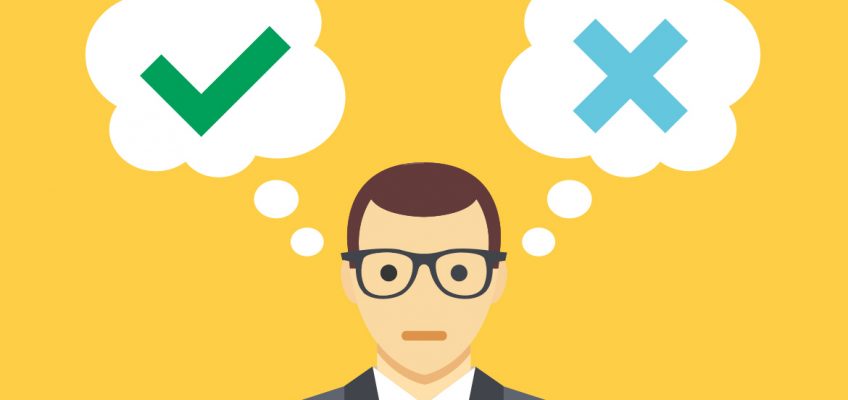Making decisions is an every day part of life, ranging from what clothes to wear today to considering opportunities within your legal career. How we go about making these decisions and the speed with which we make them can drastically affect the ultimate outcome, dependent on how we make the decision. What are the ways we can improve this fundamental ability?
Daniel Kahneman, behavioural economist and author of Thinking Fast and Slow, suggests that our brain has two separate “systems” or methods for thinking about a situation and making an informed decision. The first of these systems is quick-thinking, automatic and involuntary. Whilst this may be useful for certain types of situations, it may jump to the wrong conclusions from time to time. Contrastingly, system two is slower and more rational, taking time to come to a balanced decision when present with a certain scenario. However, this can require an excessive amount of attention and time, something which we may not always have. Kahneman suggests that the way we make the most of our decision-making capabilities is learning to effectively blend and balance these two systems so we can come to the most effective conclusion possible.
Another key method for effective decision-making is to cut out the overthinking. Some studies have shown that the longer we think about a decision or problem, the higher our stress levels become related to the issue at hand. This, in turn, creates an environment where coming to a rational conclusion is impossible, and will almost always lead to a bad choice. Obviously, some consideration of salient facts is important, but knowing when to act on these considerations can greatly improve our ability to decide effectively.
If you’ve ever struggled to make a decision, one useful way of getting around this is by considering the opposite. The psychological theory known as belief perseverance, where we continue to believe something despite evidence to the contrary, is likely affecting your abilities to choose effectively. One way round this is to challenge your longstanding beliefs and consider the opposite. If you think now isn’t perhaps the right time to make a career move based on one factor, try listing all the factors which mean that you should. Often, this can lead us to evaluating circumstances from a different perspective and lead us down a different path.
Learning how to master the art of decision making can greatly improve your chances of success, both in your professional and personal life. If you’d like to have a confidential chat about decisions to be made in your legal career, feel free to give me a call.




